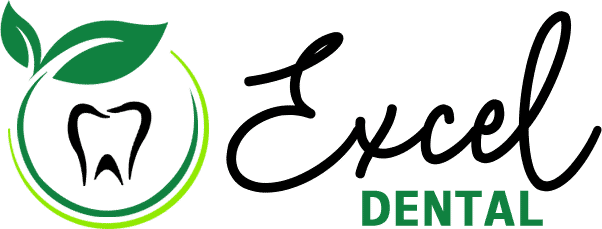Primary preventive dentistry is an essential aspect of maintaining optimal dental health. By implementing preventive measures, individuals can proactively protect their teeth and gums, avoiding costly and painful dental issues in the future. This blog post will delve into various examples of primary preventive dentistry, highlighting the importance of daily oral hygiene practices, regular dental check-ups, fluoride treatments, dental sealants, and dietary recommendations. By prioritizing these preventative measures, readers can take control of their dental health and enjoy a lifetime of healthy smiles.
Daily Oral Hygiene:
Maintaining a proper daily oral hygiene routine is vital for preventing dental issues. Here are the step-by-step guidelines for effective daily oral hygiene:
A. Brushing Techniques And Frequency:
1. Brush your teeth at least twice daily, generally before breakfast and before bed.
2. Use a soft-bristled toothbrush and fluoride toothpaste.
3. Brush the gums with the toothbrush at a 45-degree angle.
4. Brush gently in circular motions, covering all tooth surfaces, including the outer, inner, and chewing surfaces.
5. Spend at least two minutes brushing your teeth to remove plaque adequately.
B. Importance Of Flossing:
1. Floss your teeth at least once a day, preferably before brushing.
2. Wield about 18 inches of floss around your middle fingers, leaving a small section to work with.
3. Gently slide the floss between your teeth and curve it into a C around each tooth.
4. Move the floss up and down, cleaning below the gum line.
5. Repeat for each tooth, using a new section of floss each time.
6. Flossing helps remove plaque and food particles from areas your toothbrush cannot reach, reducing the risk of cavities and gum disease.
C. Mouthwash And Its Benefits:
1. Mouthwash may be an excellent complement to your dental hygiene regimen. Choose an antibacterial or fluoride mouthwash that your dentist has prescribed.
2. Pour the recommended amount of mouthwash into a cup and swish it around your mouth for about 30 seconds.
3. Mouthwash helps kill bacteria, freshens breath, and reaches areas that brushing and flossing may miss.
4. It can also help reduce plaque buildup, prevent gum disease, and strengthen tooth enamel if fluoride is present.
Mouthwash should be used to supplement brushing and flossing for optimal oral health, reducing tooth decay and gum disease risk. Consistency is key.
Regular Dental Check-Ups:
Regular dental appointments are required to maintain good oral health, which is essential to preventive dentistry. Here’s a brief step-by-step guide:
A. Importance Of Regular Visits To The Dentist:
1. Arrange oral check-ups every six months or as your dental professional recommends.
2. Regular visits allow dentists to assess your oral health, identify potential issues early on, and prevent them from escalating.
3. Professional cleaning during these appointments removes stubborn plaque and tartar buildup, reducing the risk of gum disease and cavities.
4. Dentists can provide valuable advice on proper oral hygiene techniques and address concerns or questions.
B. Potential Issues That Can Be Detected Early:
1. Dentists examine your teeth, gums, and mouth thoroughly during dental check-ups for signs of decay, gum disease, oral cancer, or other abnormalities.
2. Early detection of cavities enables timely treatment, preventing further damage to the tooth structure.
3. Detecting gum disease early allows for intervention and prevents it from progressing to advanced stages, which may cause tooth loss.
4. Oral cancer screenings performed by dentists can detect abnormalities early, increasing the chances of successful treatment.
Regular dental check-ups are essential for maintaining oral health, preventing severe issues, promptly addressing concerns, ensuring teeth and gums remain healthy, and addressing potential problems.
Fluoride Treatments:
Fluoride is instrumental in preventing tooth decay and strengthening tooth enamel. Here’s a brief step-by-step guide:
A. Explanation Of Fluoride’s Role In Preventing Tooth Decay:
1. Fluoride aids in remineralizing and strengthening tooth enamel, making it more resistant to acid assaults caused by bacteria and carbohydrates.
2. It can reverse early-stage tooth decay by enhancing the remineralization process and inhibiting the production of harmful acids by bacteria in the mouth.
3. Fluoride also reduces the ability of bacteria to stick to teeth, preventing plaque formation.
B. Different Methods Of Fluoride Application:
1. Fluoride is available in toothpaste, mouth rinses, gels, and varnishes.
2. For daily fluoride use, choose a toothpaste with fluoride as an active ingredient, ideally recommended by your dentist.
3. Mouth rinses containing fluoride offer an additional preventive measure, particularly for individuals at higher risk of tooth decay.
4. A dental professional can apply Fluoride gels or foams directly to the teeth during in-office treatments.
5. Dental sealants, which contain fluoride, can protect the chewing surfaces of molars and premolars.
Fluoride treatments can protect teeth from decay and strengthen enamel, with dentist consultation determining the best method and frequency for individual dental health needs.
Dental Sealants:
Dental sealants are a part of preventive dentistry procedure that guards against cavities. Here’s a brief overview:
Definition And Purpose Of Dental Sealants:
1. Sealants for teeth are thin plastic resin coatings placed on the chewing surfaces of molars and premolars.
2. The sealants act as a barrier, sealing off the deep grooves and fissures on these teeth, where bacteria and food particles often get trapped.
3. By creating a smooth surface, sealants make it easier to clean the teeth, reducing the risk of cavities.
Benefits Of Sealants In Preventing Cavities:
1. Dental sealants protect against tooth decay by preventing bacteria and decay-causing substances from reaching the enamel.
2. Sealants offer long-lasting protection, lasting several years before needing replacement.
3. Children and teenagers more prone to cavities due to inadequate oral hygiene or difficulty reaching back teeth can particularly benefit from sealants.
4. Applying sealants is painless and non-invasive, requiring no drilling or removal of tooth structure.
5. Sealants are a cost-effective preventive measure that can help save money on extensive dental treatments in the future.
Dental sealants offer additional protection to teeth, especially chewing surfaces. Consult a dentist for consultation and suitable application timing.
Dietary Recommendations:
The impact of diet on dental health should not be underestimated. What we consume can significantly affect the health of our teeth and gums. Here’s a brief overview of dietary recommendations for good oral health:
A. The Foods To Avoid:
1. Limit the intake of sugary foods and beverages, as they fuel bacteria to produce acid, leading to tooth decay.
2. Minimize consumption of acidic foods and drinks like citrus fruits and carbonated beverages, as they can erode tooth enamel over time.
3. Reduce the frequency of snacking, especially on sticky and sugary snacks, as this prolongs the exposure of teeth to harmful acids.
B. The Foods To Promote:
1. Consume a balanced diet of fruits, vegetables, whole grains, and lean proteins, supporting oral and systemic health.
2. Incorporate dairy products like milk, cheese, and yogurt, which are high in calcium and help strengthen tooth enamel.
3. Drink plenty of water throughout the day to keep your mouth hydrated and rinse food particles and bacteria away.
4. Chewing sugar-free gum after meals stimulates saliva production, which helps neutralize acids and wash away debris.
Conscious eating, drinking, and maintaining a balanced diet are key to promoting oral health, with regular brushing, flossing, and dental check-ups also essential for optimal oral health.
Primary preventive dentistry involves daily oral hygiene practices, regular dental check-ups, fluoride treatments, dental sealants, and dietary recommendations. These measures help remove plaque, reduce tooth decay and gum disease risk, and prevent cavities. Prioritizing these preventive measures ensures a lifetime of healthy smiles and prevents costly and painful dental problems.
You can also see our latest article: Traditional Braces and Invisalign: Which One is Better?


